Don’t panic
When mosquitoes bite a person or animal infected with a virus, like Zika, dengue, or St. Louis encephalitis, the skeeter can go on and transmit when they bite another person. That’s not great, considering that these are stealth little buggers that bite you on the sly.
However, time for a deep breath: “While these diseases are in the news, there’s relatively little risk to either people living in the U.S. or traveling abroad,” says Jared Aldstadt, PhD, a medical geographer and expert in the transmission of mosquito-borne illnesses at the University of Buffalo.
That said, while the likelihood is low, the risk is real, so having these diseases on your radar is smart. (Learn about 10 things that attract mosquitoes.)
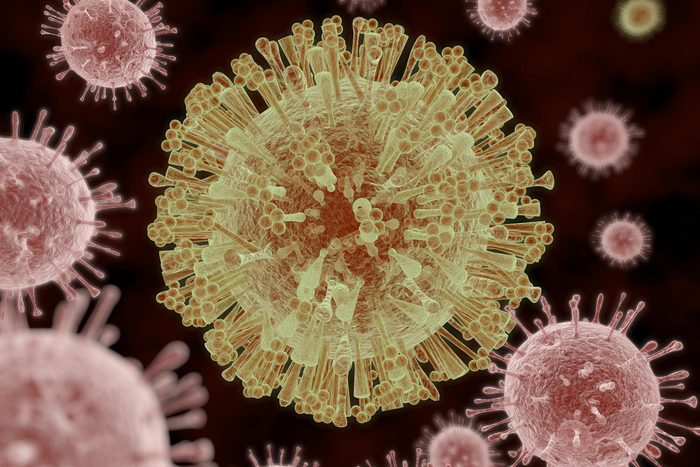
Zika
You might not have heard of Zika until 2016, when the CDC issued a travel alert for places known to have the virus. Particularly concerning was the fact that the Zika virus was linked to microcephaly, a birth defect in which an infant’s head is smaller than normal. The virus is transmitted by a bite of the Aedes aegypti mosquitoes.
Despite the outbreaks, it’s quieted down significantly. Why? There’s one Zika virus, and you can only get it once. That means people who have already been bitten by infected Aedes mosquitoes are immune, limiting its spread, says Aldstadt.
As of July 2020, only one case has been reported in the United States all year, and none were from U.S. mosquitoes—all of those infected had been traveling to affected areas, according to CDC data. (Learn why one company decided to release 20 million mosquitoes in California.)
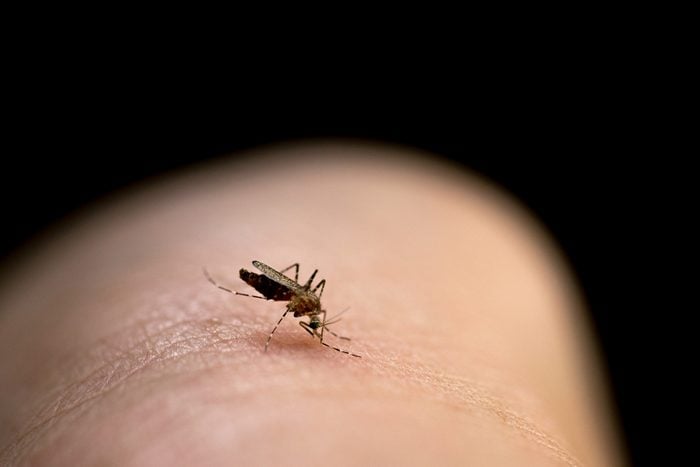
West Nile
This virus is found all over the United States. The good news is that 80 percent of those infected have no or few symptoms. If they notice the infection, the symptoms will be flu-like (fever, headache, body ache); the body usually fights off the virus itself, without treatment. For an unlucky few, West Nile can be life threatening, because the virus can cause encephalitis and meningitis.
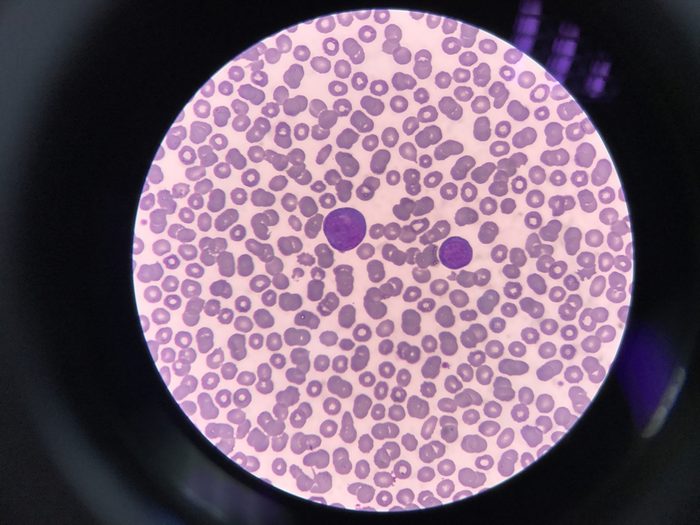
Dengue
There are four dengue viruses, explains Aldstadt, so getting it once won’t protect against future infections. While the same mosquito species that carries Zika also spreads dengue, people in the United States are rarely at risk unless they travel. Occasionally dengue pops up in the United States, but only in Florida, Hawaii, and areas along the Texas-Mexico border where these mosquitoes thrive, Aldstadt says. Still, transmission is sporadic.
The disease is a leading cause of death in tropic and subtropic regions, and 2.5 billion people are at risk for dengue in Asia, Africa, and the Caribbean. If you live in a place or are traveling to a place where dengue is endemic, avoiding mosquito bites is your best bet; there’s no vaccine to prevent the virus. (Here are 9 immunizations and medications you’ll need before you travel.)
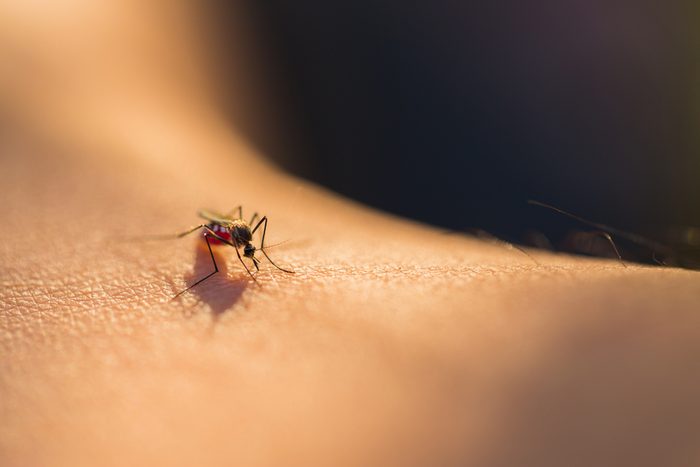
Chikungunya
This virus—also from the Aedes aegypti mosquito—causes sudden fever, headaches, and joint pain, which can persist for years. Unfortunately, you can’t prevent or treat chikungunya, which is most commonly found in Africa and Asia, although cases have turned up in the Caribbean and mainland United States.
Protecting yourself from bites is your best course of action.

St. Louis encephalitis (SLEV)
This relatively rare virus causes meningitis or encephalitis in an average of seven people a year, according to the CDC. The areas of the country most commonly affected include Eastern and Central United States. Encephalitis is inflammation of the brain, and elderly people tend to be at highest risk for complications.
Fewer than 1 percent of people who get the virus show any symptoms at all, with the vast majority of people going undiagnosed. The mortality rate is about 5 percent to 15 percent in people who do show symptoms and are diagnosed with the infection.
Two other types of mosquito-borne encephalitis that pop up around the country include La Cross encephalitis (LACV) in wooded areas in Central and Eastern United States, and Eastern equine encephalitis (EEEV), a danger to people who live in swampy areas.
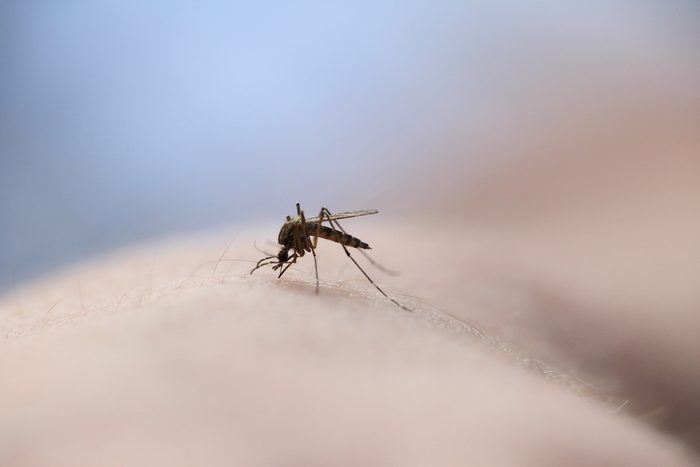
There’s something unique about mosquito-borne encephalitis
The primary food source for the mosquitoes that transmit encephalitis isn’t humans. For instance, mosquitoes pick up SLEV through birds, while LACV is from chipmunks and squirrels. If these skeeters were to bite you, it’s more of an accident, says Aldstadt.
And although they can transmit the disease from an animal host to you, a mosquito that bites an infected human won’t transmit one of these viruses to another human, he notes. (We’re called a “dead end host.”)
Thankfully, the lack of human-to-human transmission means these illnesses are unlikely to ever become epidemics. (Don’t miss these 12 mosquito-borne diseases you need to know about.)
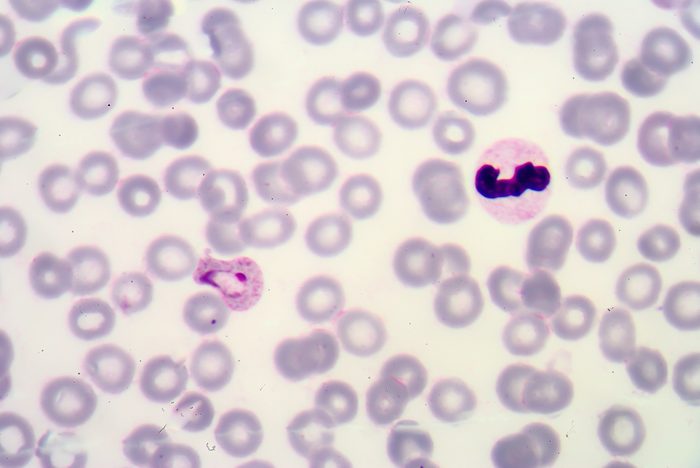
Malaria
Forty percent of the world’s population is at risk for malaria, according to the WHO. Most of the cases are found in Africa; the disease spread by Anopheles mosquitoes is almost nonexistent in the United States.
If you’re traveling to a place where the dangerous illness is rampant (like sub-Saharan Africa), ask your doctor whether malaria prevention medication is necessary, and purchase it in the United States before leaving, advises the CDC. Malaria symptoms include high fever and severe chills.
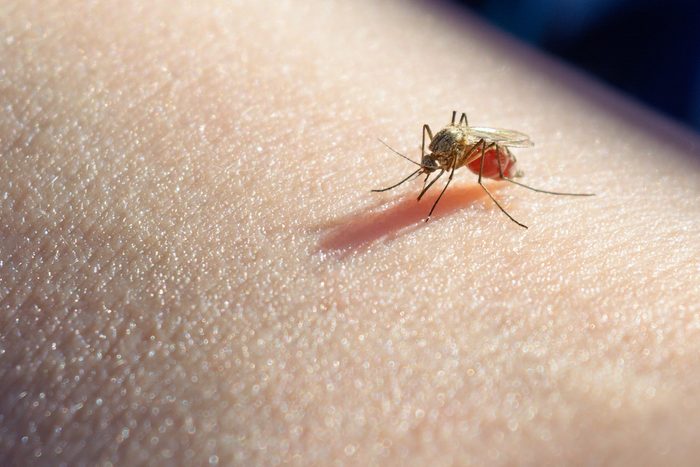
Yellow fever
People in the United States traveling to tropical areas of Africa and Central and South America are most at risk for yellow fever, an illness marked by fever, headache, muscle pain, vomiting, and in some cases, jaundice.
There is a vaccine to prevent the illness, and a single dose delivers protection for life, according to the WHO. (Find out which bug bite symptoms you should never ignore.)
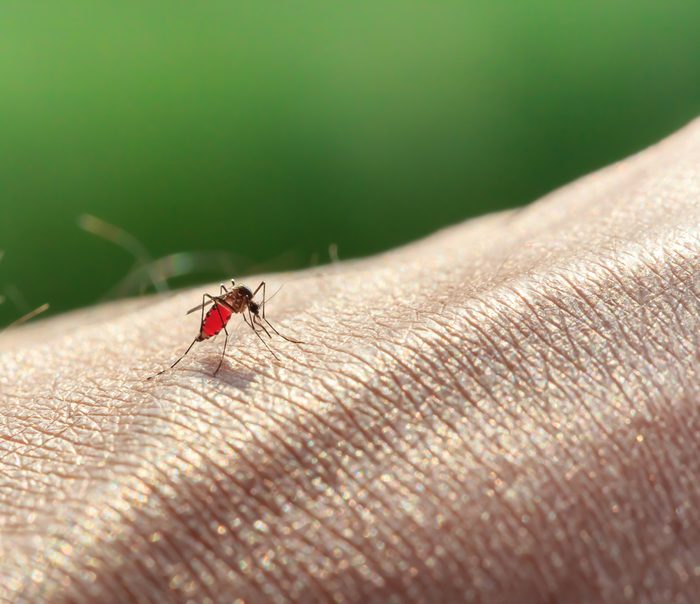
Stay safe on vacation
If you are worried about diseases like dengue or Zika, it’s better to book a hotel rather than a rental house or a stay with families. “Houses are the environment where transmission happens,” says Aldstadt. “You won’t catch it in an air-conditioned hotel.”
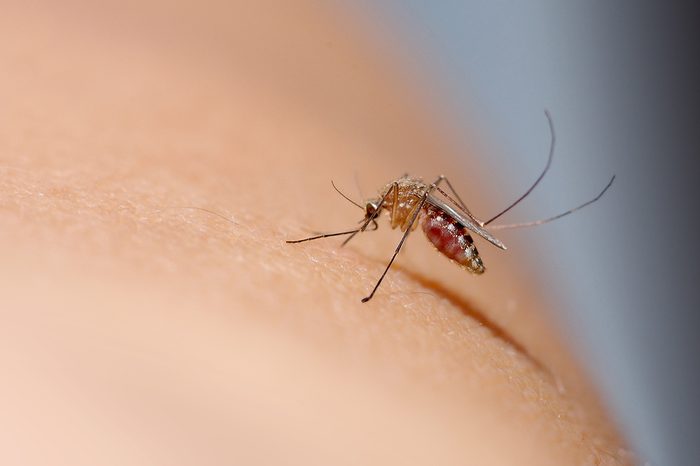
Practice prevention
There are few vaccines for mosquito-borne illnesses, so you’re going to want to keep the critters at bay with repellents and mosquito nets, according to the CDC. If you’re traveling to an infected area, check ahead to see if there’s an outbreak, and delay your trip if necessary.
You can also learn the habits of problematic species—for example, Zika mosquitoes are usually out during the day, while malaria mosquitoes come out during the evening—and take extra precautions during those times. Use DEET or picaridin repellents to keep mosquitoes at bay since it’s one of the things they hate the most.
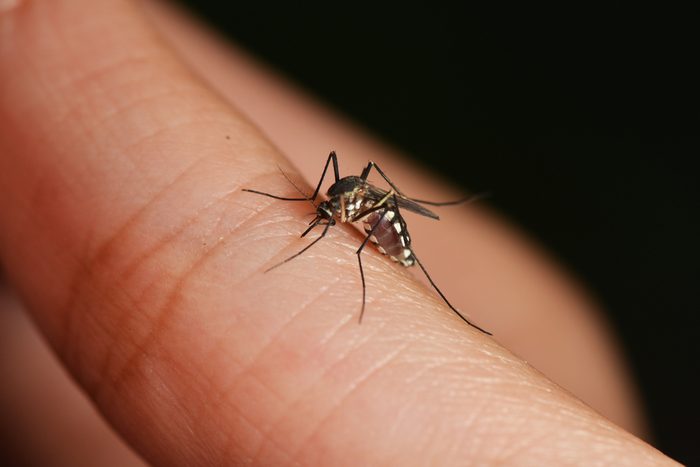
Your surroundings do a lot to keep you safe
Although climate change could cause mosquito-borne diseases to spread to new corners of the United States (like the Northeast), Aldstadt has some reassuring words. “In the U.S., we’re relatively safe from [mosquito-borne illnesses] compared to less developed countries because we have quality buildings, screens on our windows, and air conditioning is ubiquitous,” he says. “We are largely protected by our standard of living.” But just in case, here are 8 more ways to protect yourself from mosquito bites.
